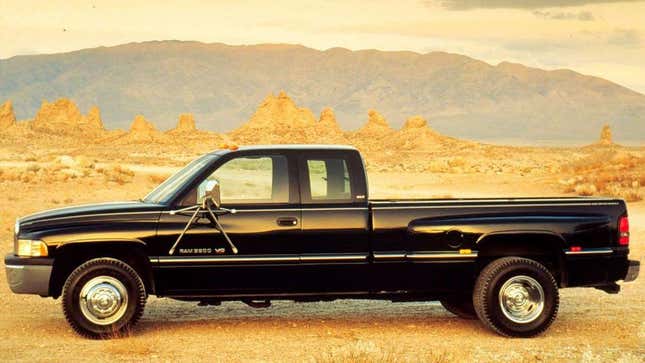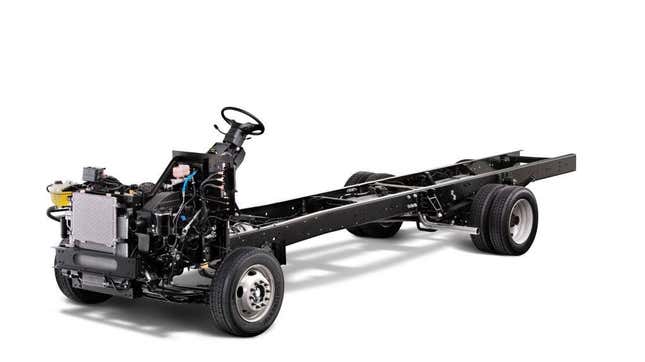
V10 engines aren’t particularly common in road cars, but there was a time when two of America’s Big Three automakers engineered V10s to replace big block V8s in their heavy duty truck platforms. Even before the Volkswagen Group, BMW, and Lexus built their outstanding V10 performance engines, America was already mass-producing producing 10-cylinder engines. Dodge was the first to mass-produce a gasoline V10 in its Viper sports car in 1991, and Dodge was the first to put a V10 engine to work in its heavy-duty pickup trucks starting in 1994. Contrary to popular belief, Dodge Ram trucks didn’t have the same engine as the Viper, and the Viper didn’t have a truck engine under its hood. When it came time to drop the massive Mopar 10-cylinder engine between the frame rails of the brand’s heavy-duty pickup trucks, Dodge chose to make the engine block out of iron instead of the Viper’s aluminum block. Starting in 1994, the Dodge Ram 2500 and 3500 featured this iron-block 8.0-liter V10 alongside a Cummins diesel engine. The iron block gasoline V10 was dubbed the Magnum V10, and produced more horsepower than the diesel engine, but got worse fuel economy. The Magnum V10 produced between 300 and 310-horsepower throughout its production run, and 450 pound-feet of torque. It was dropped from the lineup after the 2003 model year, though the Ram SRT-10 sports truck was produced using the Viper’s aluminum 8.3-liter V10 from 2004 to 2006.

Ford’s Triton V10 was produced from 1997 to 2021, and was used in a vast array of applications from heavy-duty pickups to E-Series chassis used as school buses and even motorhomes. This engine is part of Ford’s Modular line, and it shares the bore and stroke with the smaller 5.4-liter Ford V8, but with two extra cylinders. When it was first introduced in 1997, the 6.8-liter V10 produced 275 horsepower and 425 pound-feet of torque, and by the time it went out of production it was producing 362 horsepower and 460 lb-ft of torque. It replaced Ford’s 7.5-liter V8 that had been in use since the ‘60s, and it was used in F-250 and F-350 heavy-duty pickup trucks, the Ford Excursion, heavy-duty E-series vans, as well as motorhomes and buses that were built on Ford platforms. The Triton V10 was replaced by Ford’s 7.3-liter Godzilla V8, which is a significantly more advanced engine that produces more power and delivers better efficiency than the big 10-cylinder.
It seems like the days of V10-powered trucks are behind us as we continue to face a worsening climate crisis, but these two American V10 engines don’t get the love that they deserve. These workhorse powerplants don’t have the same appeal as exotic V10s like the Lexus LFA or Porsche Carrera GT, but they were sold in significantly higher numbers and work just as hard. We’ll miss V10s whether they’re in supercars or school buses, but change is inevitable.







